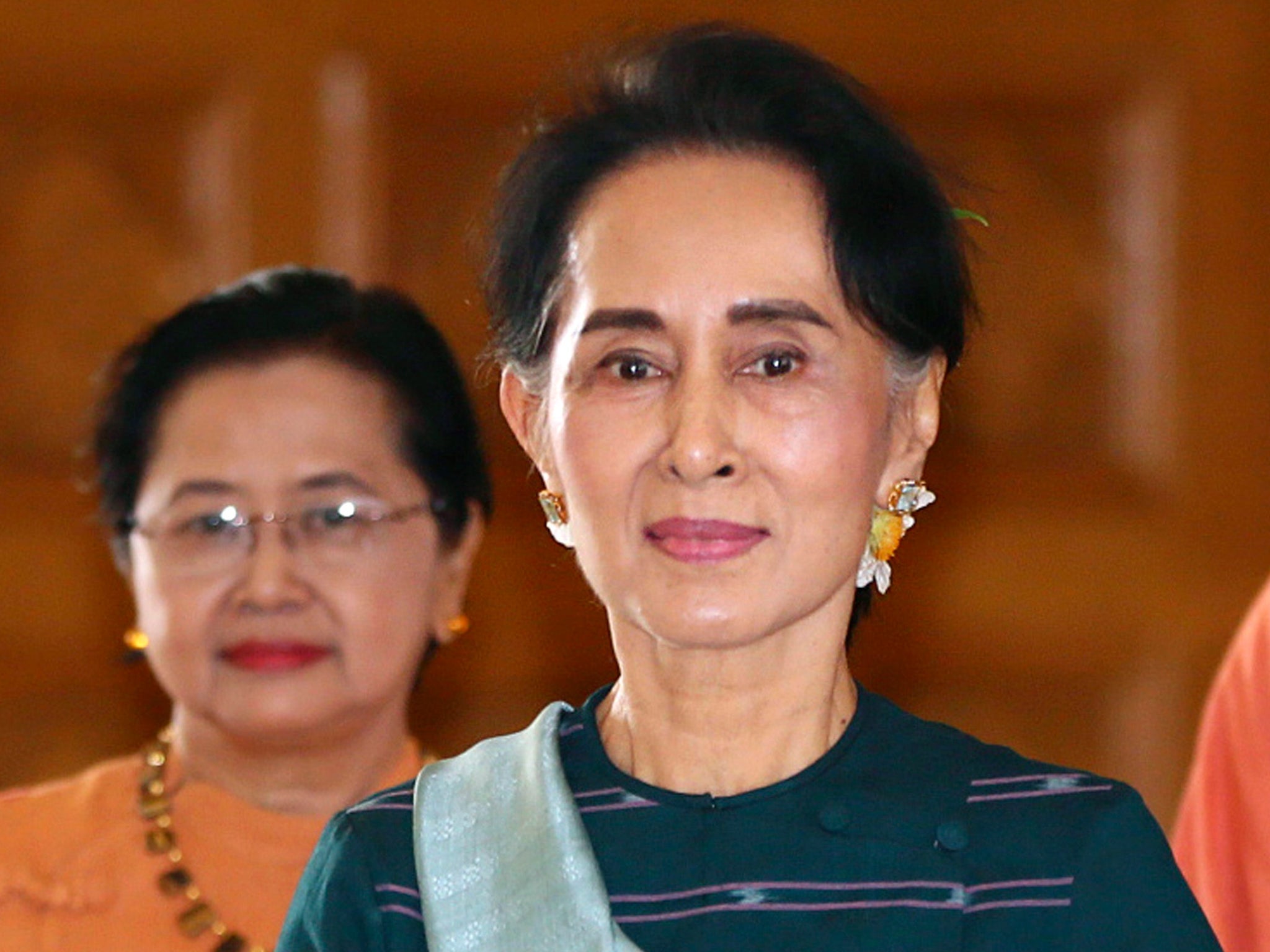Aung San Suu Kyi: What the 'interviewed by Muslim' BBC Today programme comment can tell us about her views
Given her tolerant, liberal background, why did she appear to rage about Mishal Husain after that difficult interview?

Your support helps us to tell the story
From reproductive rights to climate change to Big Tech, The Independent is on the ground when the story is developing. Whether it's investigating the financials of Elon Musk's pro-Trump PAC or producing our latest documentary, 'The A Word', which shines a light on the American women fighting for reproductive rights, we know how important it is to parse out the facts from the messaging.
At such a critical moment in US history, we need reporters on the ground. Your donation allows us to keep sending journalists to speak to both sides of the story.
The Independent is trusted by Americans across the entire political spectrum. And unlike many other quality news outlets, we choose not to lock Americans out of our reporting and analysis with paywalls. We believe quality journalism should be available to everyone, paid for by those who can afford it.
Your support makes all the difference.Plenty of Burmese Buddhists are extremely prejudiced against Muslims. But is Aung San Suu Kyi?
After a torrid interview with Mishal Husain for the Today programme, she was reportedly heard to say angrily, “No-one told me I was going to be interviewed by a Muslim.” I was told this by a reliable source and quoted it in my new book, The Lady and the Generals. What does it tell us about Suu Kyi’s views?
It is true that she has never made a clear statement in support of the Rohingya, the persecuted Muslims of western Burma, tens of thousands of whom are stateless, homeless and without rights thanks to official Burmese government policy. She has lamented the violence in Arakan state but has refused to endorse the judgements of organisations such as Human Rights Watch, which have blamed Arakan’s Buddhists for the persecution of the Muslims.
As a result she has been widely attacked by many in the West who were shocked by her apparent inability to see and condemn what was happening. Given her vast popularity, many feel that if she had spoken up at the right moment she could have brought the persecution to an abrupt end.
That may be true – there is no way of knowing. And there is nothing in Suu Kyi’s earlier life to lead one to think that she might be bigoted. As I revealed in my biography of Suu Kyi, The Lady and the Peacock, her first serious boyfriend when she was a student at Oxford was a Pakistani (he went on to become a top diplomat for his country), she lived for 20 years in multicultural Britain without manifesting any known anti-Muslim hostility, and one of the key people who persuaded her to get involved in Burma’s democracy uprising was Maung Thaw Ka, a Muslim journalist and author who subsequently died in jail.
So given her tolerant, liberal background, why did she appear to rage about Mishal Husain after that difficult interview? Is it because her chief of staff and constant companion, Dr Tin Mar Aung, is herself from Arakan’s Buddhist community? Does she have bigoted opinions which might have infected Suu Kyi?
It’s possible. But there could be a simpler explanation. Suu Kyi has been struggling to attain power in Burma for the past 28 years. She is vastly popular with her fellow countrymen, more than 90 per cent of whom are Buddhists, like her. But her enemies in the military regime have never stopped trying to blacken her name. Their favourite method was to say that she wasn’t properly Burmese because she had been married to an Englishman, had lived in the West for many years and produced two foreign sons. And by depicting her as foreign, they tried to lump her together with the Muslim minority who are also regarded by many Burmese Buddhists as aliens with no right to remain in the country.
My hunch is that Suu Kyi feared that if she spoke up for the Rohingya, it would make it easy for her enemies to repeat this argument – and if the Burmese masses fell for it, that could erode her standing and her chances of coming to power. So she has been sitting uncomfortably on the fence for the past five years.
In such a posture she became a sitting duck for anyone – Muslim journalists to the fore – who wanted to attack her for betraying both her human rights record and her status as a winner of the Nobel Peace Prize. She became hyper-sensitive on the issue.
Now she is coming to power with a solid parliamentary majority, perhaps she can relax and tell us what she really thinks.
The Lady and the Generals: Aung San Suu Kyi and Burma’s Struggle for Freedom by Peter Popham is published by Rider.
Join our commenting forum
Join thought-provoking conversations, follow other Independent readers and see their replies
Comments